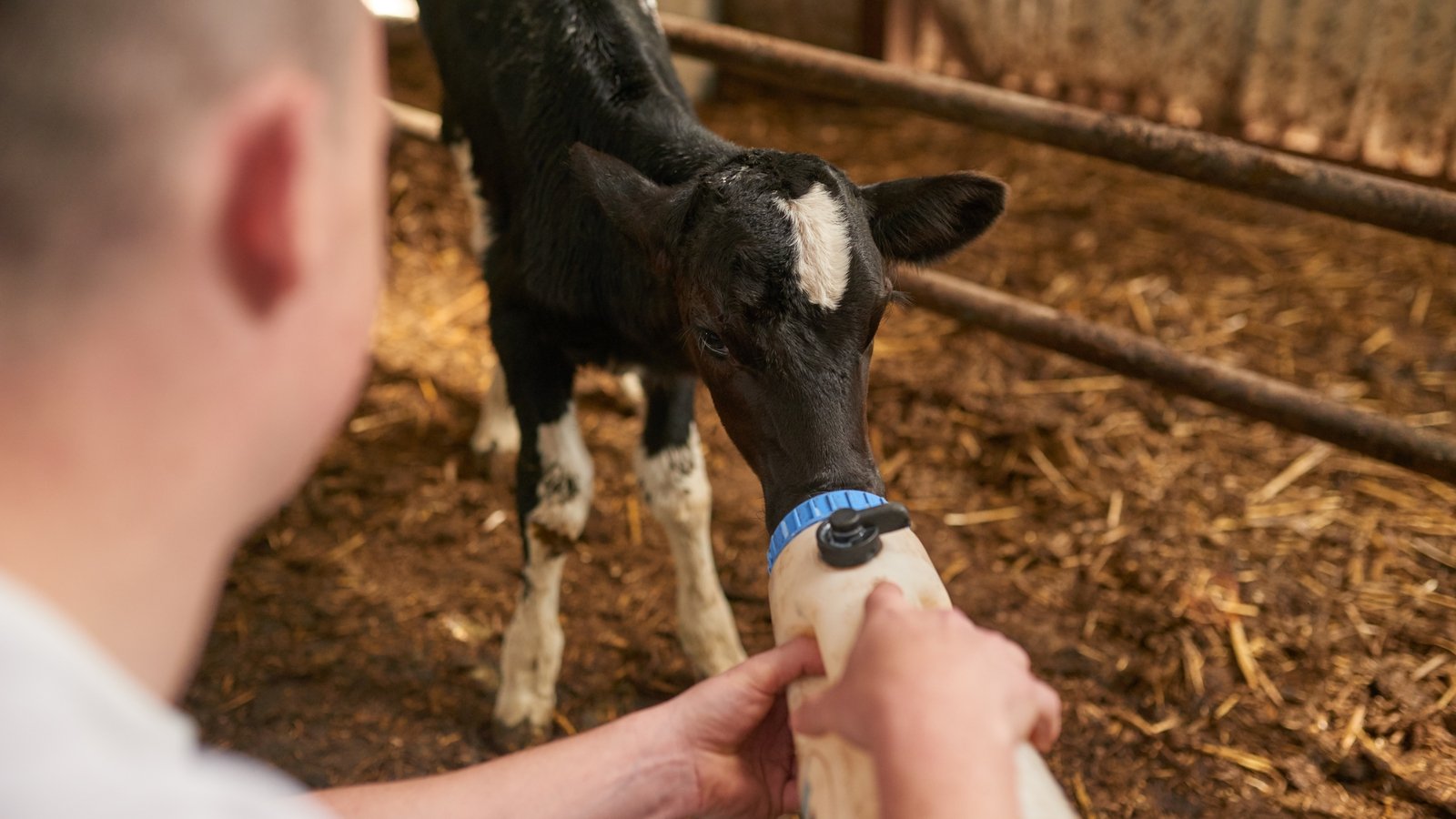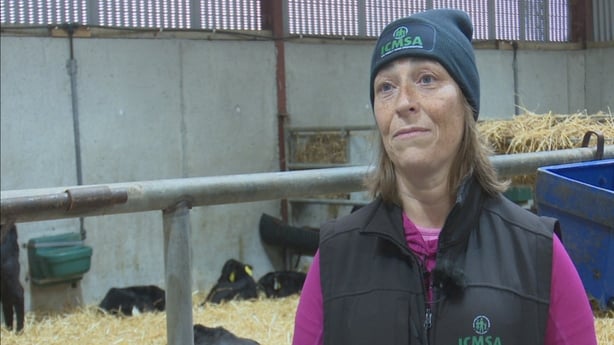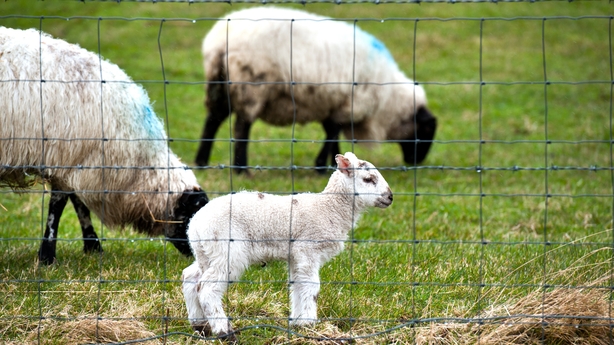Farm worker shortage leading to difficult calving season

Another busy morning on the Smyth farm in Corraclevin, Co Offaly and the newest calf to be born is finding his feet alongside his mother.
He is the latest of around 90 calves born so far this year on the farm and with another 60 due at any time, day or night, dairy farmers Joe and Karen Smyth, like so many others, are on call 24 hours a day.

Karen, who sits on the National Council of the ICMSA, says help on the farm is vital but very hard to find.
She says: “You’re working hard and you could do with the extra help. Last year we took on a Ukrainian chap and he stayed about six months but he left there just before Christmas before calving started this year.
“We have a very good student and he’s with us for 16 weeks so that we’ll see out our calving.”
“I’d love if somebody was here the whole time because I tell you it’s very important to have two people on the farm because accidents happen and you know what, when there’s someone there there’s a lot of comfort knowing that,” she adds.
Colin Donnerry, CEO of Farm Relief Services a farmer-owned co-p based in Roscrea, Co Tipperary, says: “Particularly over the last four years it’s become an awful lot more difficult to find a worker.”
He says: “Today we have about 1,000 people working on farms, mainly on the milking side but in general, there’s a severe sort of shortage of workers at the moment and we’ve got 100 vacancies open today.
“A lot of family farms, you know, would have had daughters and sons over the years and would have helped on the farm.

“A lot of them are heading off to Australia, to Europe, to America. That sort of helped but just isn’t there like it used to be.”
Mr Donnerry says agriculture as a whole must do more to attract workers and to promote the sector to groups including school leavers and women.
“Pay has increased dramatically in agriculture over the last four or five years, you know, upwards of €16 an hour now,” Mr Donnerry says.
“Typically construction workers having to travel a fair distance are usually commuting, you know from the Midlands, a lot of them are heading up to Dublin every day.
“If you’re working on a farm you’re probably within 10 to 15 miles and farmers can trade on that and the flexibility which we’ve seen after Covid so many more people are looking for these days,” he adds.
One consequence of the lack of labour around the calving season is a risk of accidents and injuries that can sometimes be fatal.
Minister of State with Responsibility for Farm Safety at the Department of Agriculture and farmer Martin Hayden says: “Statistically it is proven the busiest time of the year on farms leads to the highest level of fatal incidents and that’s for a variety of reasons, longer working hours, tiredness, but also availability of labour or lack of it plays a part in that as well.
“Now we’re in the middle of this really busy calving season it is really important for farmers, whose natural instinct is to protect and to try and save the calf who’s just been born, to make sure that they protect themselves as well.
“More farmers have been killed by cows than bulls over the last ten years.
“A cow will be naturally protective of her newborn calf and farmers have to be careful they plan accordingly and try and avoid putting themselves in harm’s way and never take the cow that is quiet for 11 months of the year for granted at that time.”

The labour shortages continue despite the Government increasing the number of permits for third-country workers to come to Ireland.
Last year 500 such permits were taken up.
However, challenges finding accommodation and issues with driver’s licenses and language have created difficulties. It’s not just the dairy sector facing labour shortages either.
The sheep and horticulture sectors also find it increasingly difficult to recruit staff at busy times of the year.
Karen Smith says: “It’s a problem and gets harder because nobody really wants to do any more manual work and that’s what farming is.
“There’s nothing you can do. You have to do it. That’s the that’s the story at the end of the day.”




